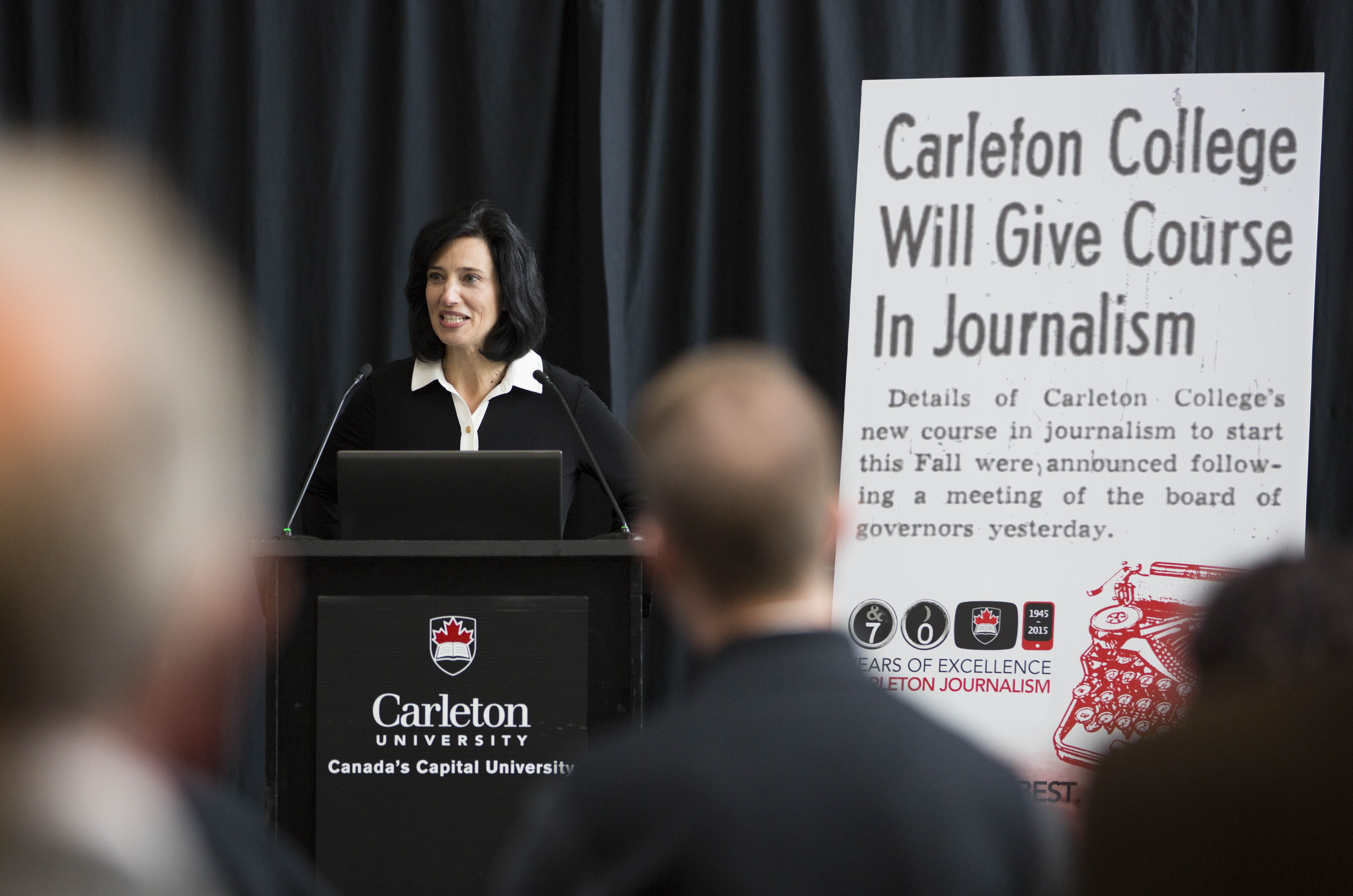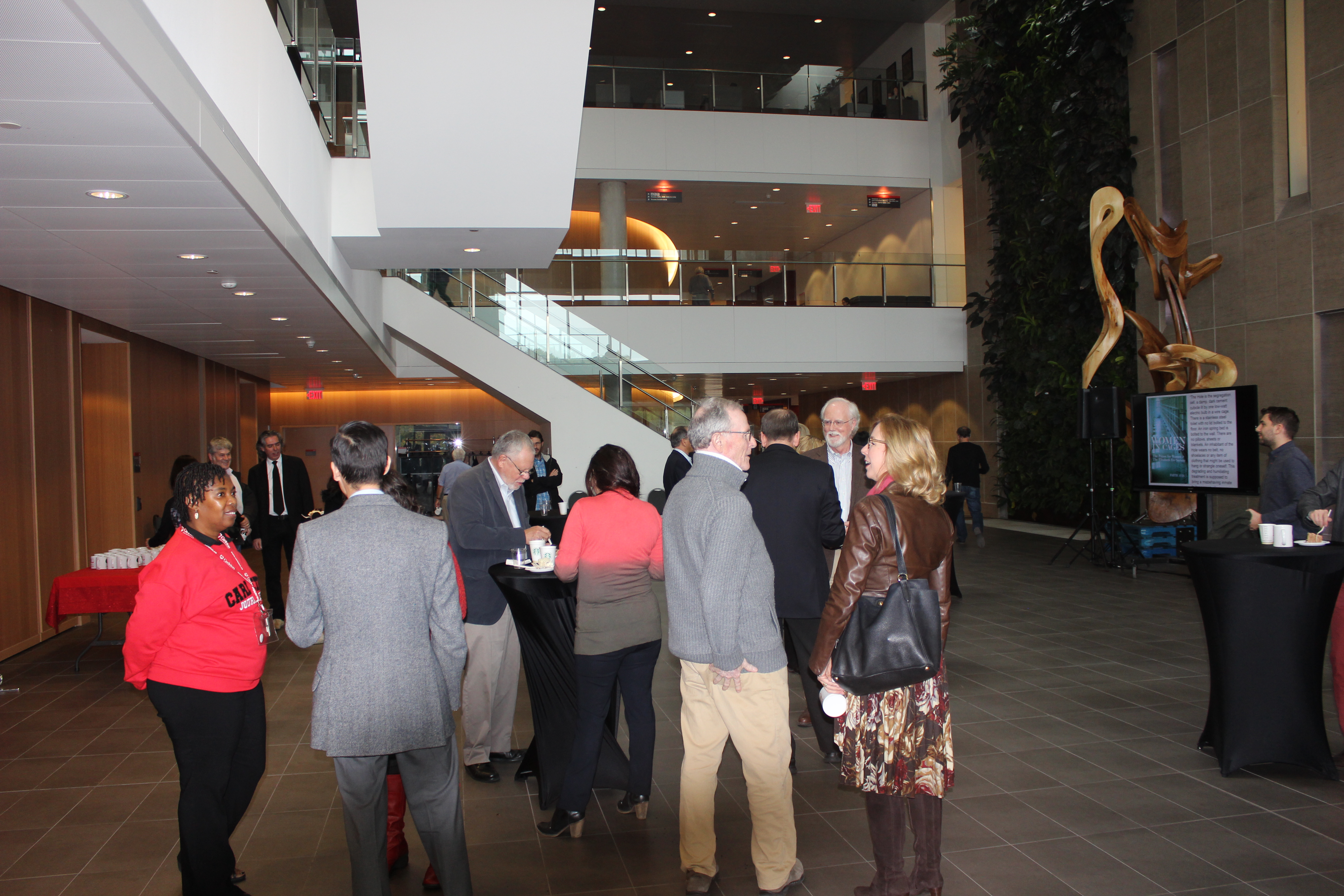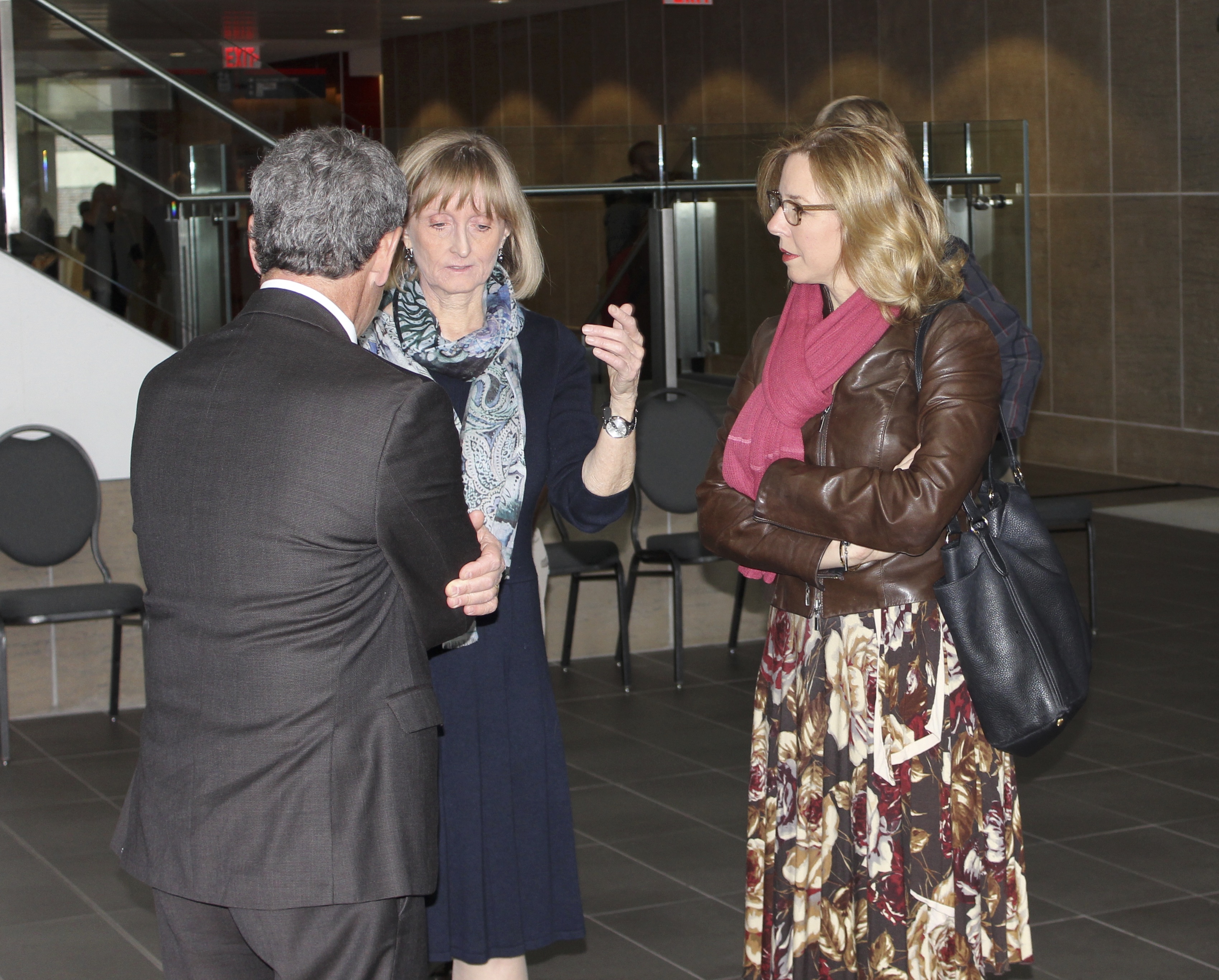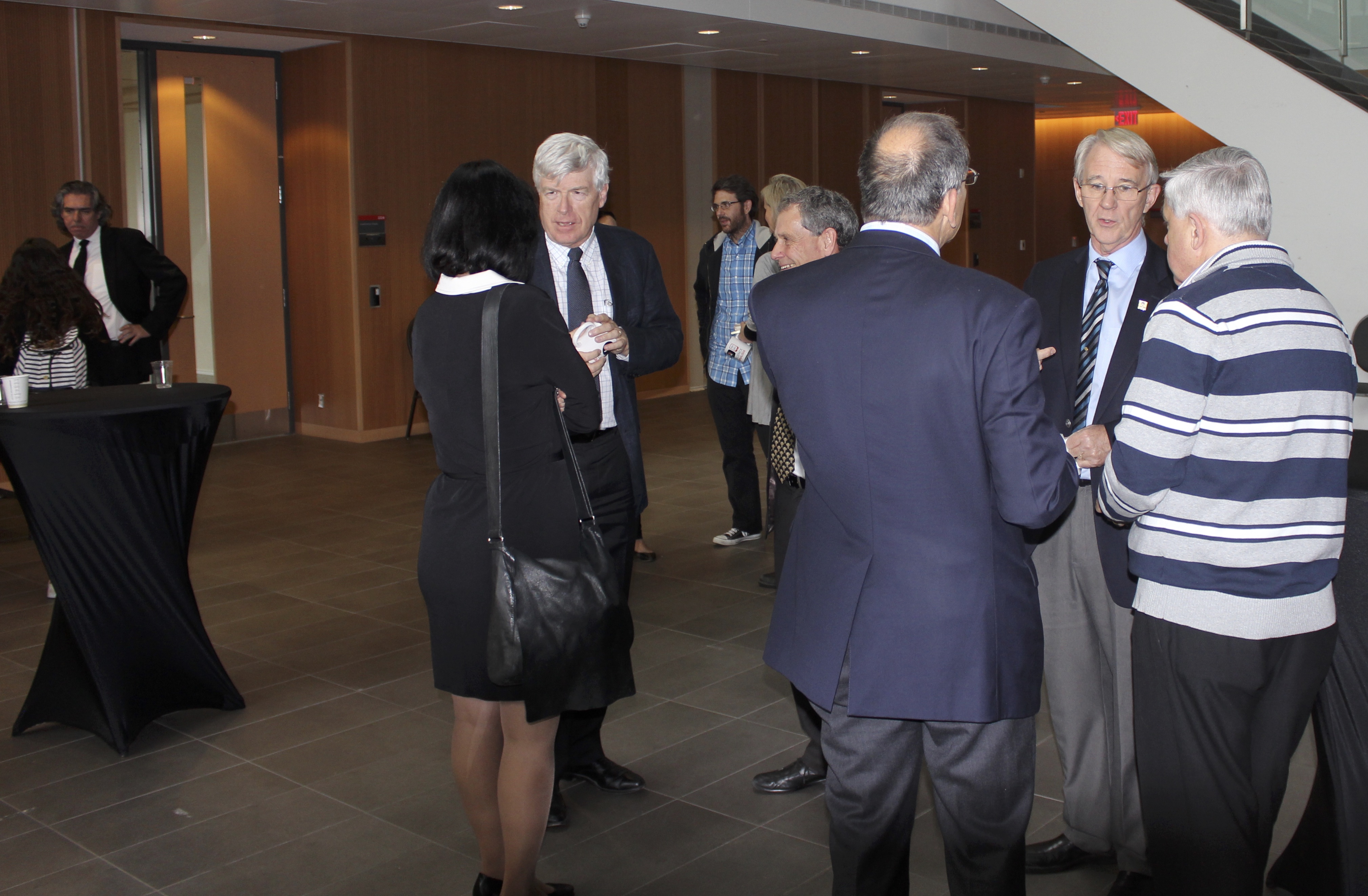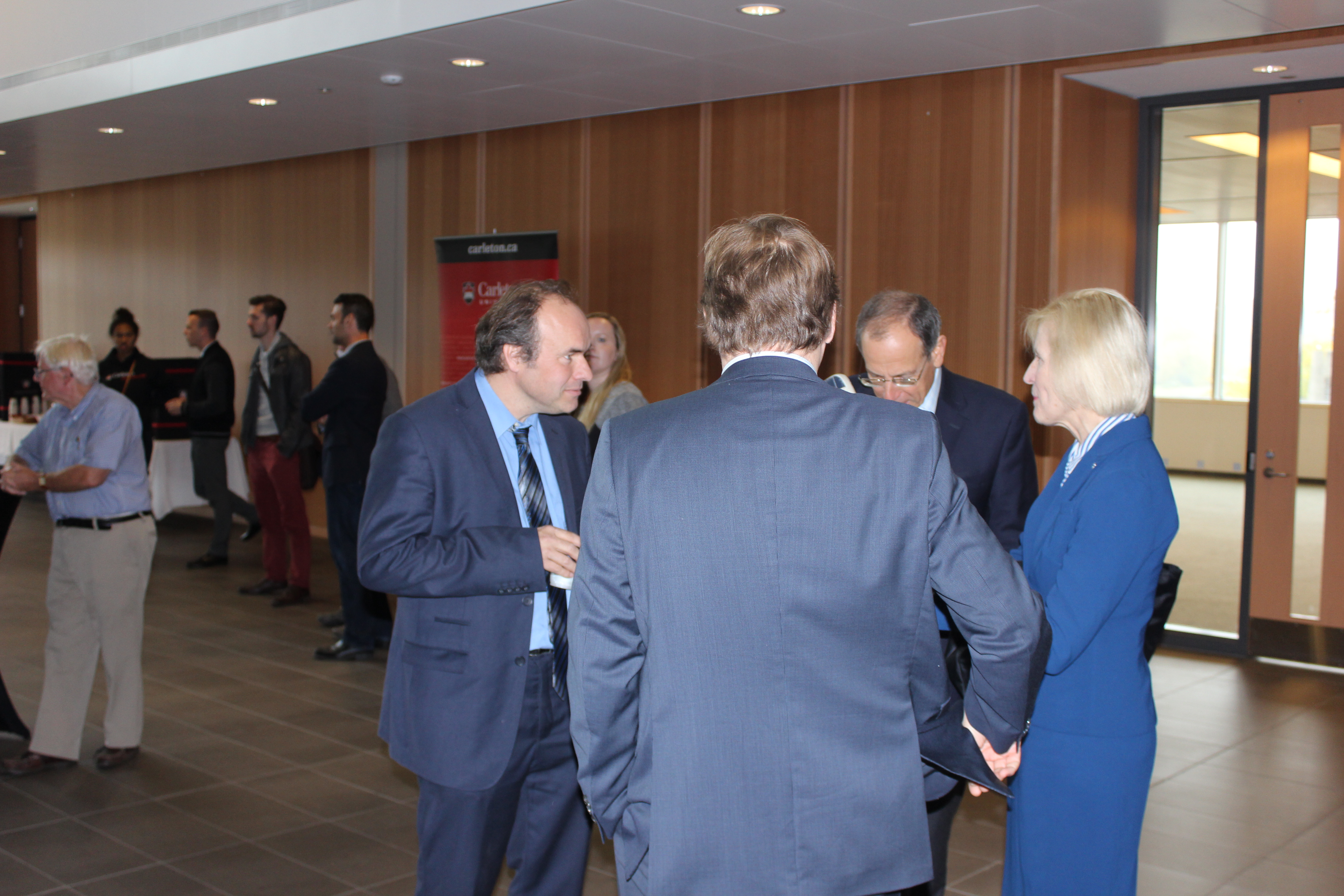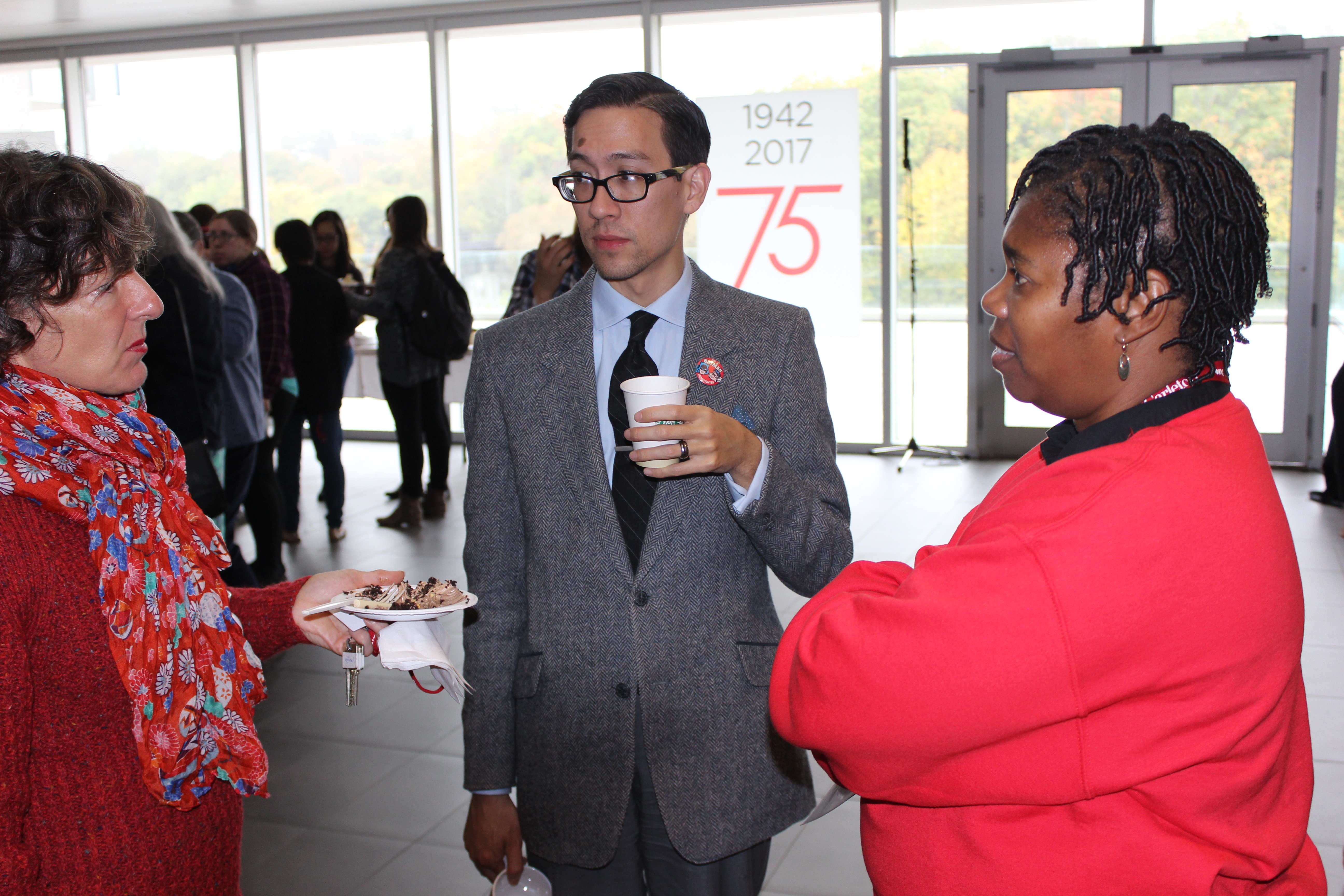The 70th anniversary of the first Bachelor of Journalism class in Canada
Seventy years to the day marking the launch of this country’s first Journalism degree program – on October 9, 2015 – some 150 guests gathered in the River Building, state-of-the-art home of today’s School of Journalism and Communication, to celebrate that anniversary and preview Carleton’s 75th birthday plans for 2017.
Roseann O’Reilly Runte highlighted the pioneering role of the three women who received the first three Bachelor of Journalism degrees from the School in 1946 – in fact, they were three of the first six degrees conferred by the fledgling university 70 years ago. She emphasized the vital contributions journalists have made and continue to make to the democratic life of the country.
– Carleton University President and Vice-Chancellor Roseann O’Reilly Runte
“The three women who graduated with their Bachelor of Journalism degrees in 1946 were the first in a long line of graduates destined to shape Canada’s future – primarily in our nation’s newsrooms – but also in fields beyond journalism, such as politics, law, education, the arts, social justice, communications. It’s a tradition that continues to this day.”
– Susan Harada, Associate Director, School of Journalism and Communication; Program Head – Journalism
“We need only watch today’s TV news from the Middle East, read the morning paper about events in Europe, listen to the drive-home show here in Ottawa, or check the latest mobile alerts about the ongoing federal election campaign to be reminded of the diverse and important ways that our Journalism alumni contribute to public life in this country day after day, as they have for seven decades.”
– Dr. Peter Ricketts, Provost and Vice-President (Academic), Carleton University
Michel Cormier, on why Carleton’s journalism program is crucial
“We are awash in rumour, opinion and unsubstantiated information. The need for accurate, independent, responsible journalism to provide citizens with information to make decisions in their lives is paramount.
“An environment like Carleton, that looks for new ways to reach new audiences with quality journalism through social media and new forms of digital media, is essential to the future of the trade.”
– Michel Cormier (BJ ’79), executive director of news and current affairs, Radio-Canada
Joanne Chianello, on the importance of the relationship between the Journalism program and the Ottawa Citizen
“When I stood in the middle of the Citizen newsroom on the night of the 2015 election, I looked out at a the sea of reporters getting ready to head out to ridings across our huge city and realized that at least half of the faces I was staring at were Carleton journalism students. And I told them: “We couldn’t do it without you.” I meant it literally.
“ … at the Citizen, we love to give journalism students experience through apprenticeships and internships. But it’s a mutually beneficial relationship … We are very lucky to have you in our town.”
– Joanne Chianello (BJ ’96), then-city editor, Ottawa Citizen
Randy Boswell, on the founding principle of the Journalism program
“From the School’s very first inkling of life in 1945, the basic principle that continues to guide its educational philosophy was clearly laid out: that the technical training required to produce – in that era – writers of journalism must be complemented by a broad education in other fields of study, such as the social sciences and literature.”
– Assistant Professor Randy Boswell, School of Journalism and Communication
Where Our Story Begins
A 70th anniversary video slideshow by Prof. Randy Boswell


